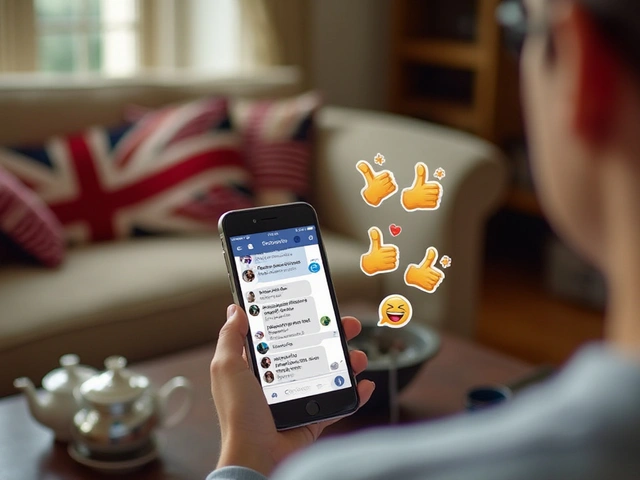In the dynamic world of online marketing, staying ahead of trends and utilizing new technologies can be the key to standing out. Today, with the rise of AI-powered tools like ChatGPT, marketers have an unprecedented opportunity to enhance their strategies and connect with audiences like never before.
Imagine having a tool that not only helps you communicate effectively but also dives deep into the art of conversation, making interactions feel personalized and engaging. That's the magic of ChatGPT. From crafting compelling content to fine-tuning customer interactions, this AI marvel is quickly becoming a game changer in the marketing space.
As we explore how ChatGPT can improve your marketing results, we'll look at its role, strategies to enhance engagement, ways to create personalized experiences, and tactics for content optimization. Uncover how you can leverage this smart technology to drive your business forward, boosting both your reach and marketing effectiveness.
- Understanding ChatGPT's Role
- Strategies for Engagement
- Personalizing Customer Experience
- Content Optimization Tactics
Understanding ChatGPT's Role
Diving into the intricacies of ChatGPT reveals a revolutionary tool that transcends conventional online marketing strategies. At its core, ChatGPT is an AI language model developed by OpenAI, designed to engage in human-like conversation. What sets this tool apart is its ability to comprehend and generate text based on input it receives, mimicking natural human interaction. This ability opens doors for AI tools to be integrated into various facets of marketing, essentially acting as a virtual assistant capable of managing customer interactions, creating content, and analyzing data.
The beauty of ChatGPT lies in its versatility. Whether it's simulating a chat with customers on an e-commerce site or drafting SEO-optimized articles, this AI powerhouse is equipped for the task. By understanding context and nuance, it can tailor responses in a way that traditional chatbots, which rely on predefined scripts, cannot. This adaptability not only enhances user engagement but also fosters a more personalized customer experience, setting businesses apart from the competition. As the digital landscape becomes more crowded, using such a tool gives companies a significant edge.
Adopting tools like ChatGPT means venturing beyond simple automation. It's about creating a seamless blend between human creativity and digital efficiency. According to a recent study by Gartner, businesses that use AI-based content creation and personalized recommendations are witnessing up to 40% increases in lead conversions. The ability to adapt language, tone, and style based on the user's brand voice or customer preferences is a game changer, hurting the reliance on large content teams. Social media platforms, customer service centers, and even internal corporate communications are hotbeds for deploying such technology.
"Our study shows that AI tools, when integrated correctly, drastically improve customer satisfaction by tailoring experiences that feel personal." - Gartner Research
To put the impact of ChatGPT into perspective, consider its use in email marketing. Imagine a scenario where you no longer sift through endless metrics and statistics to craft your next campaign. With AI’s help, businesses can create targeted messages that not only reach the right demographics but also adapt in real-time as the campaign progresses, ensuring a dynamic approach that evolves with customer interaction. This level of customization was hard to imagine a few years ago, and this capability clearly positions ChatGPT as a transformative force in the realm of digital marketing.
Looking at these capabilities, it's no wonder that an increasing number of businesses are eager to integrate AI tools, including ChatGPT, into their marketing strategies. By providing insights, fostering meaningful interactions, and delivering personalized content, these tools help forge a deeper connection between brands and their audiences. As technology continues to evolve, embracing these advancements becomes crucial for any business aiming to not only survive but thrive in a competitive digital market.

Strategies for Engagement
In the digital marketing arena, engaging your audience is not just about bombarding them with content but rather about nurturing conversations that create meaningful connections. With the arrival of AI-driven tools like ChatGPT, marketers have the opportunity to maximize their reach and captivate audiences in ways that were once unimaginable. By tapping into the interactive capabilities of ChatGPT, businesses can create dynamic and personalized dialogues that resonate with their target market. This intelligent conversationalist can adapt to user inquiries, providing relevant responses that maintain interest and spark curiosity. Effectively, the use of ChatGPT in marketing strategies is about crafting experiences that are not just transactional but also truly engaging and memorable.
Beyond just interaction, tailor your approach by focusing on personalization. When customers feel a service or message is tailored specifically for them, it can hugely impact their connection to the brand. ChatGPT helps in analyzing customer data to craft personalized responses, which not only boosts engagement but can also improve customer satisfaction and loyalty. Engaging a customer in an authentic manner often leads to longer interactions and frequent returns, providing valuable insights into consumer behavior. Additionally, by presenting content that users find appealing, you are more likely to drive conversation and encourage sharing, amplifying your message across networks.
A critical aspect is using data-driven insights to optimize these engagements. The analytical capabilities of ChatGPT provide opportunities for deep dives into customer interactions, allowing businesses to refine their marketing strategies. By measuring engagement metrics like response time, sentiment analysis, and interaction volume, marketers can identify patterns and trends to better align their efforts with audience expectations. Data collected through ChatGPT can be used to fuel A/B testing, enabling adjustments that lead to better outcomes. As users engage more with such personalized and effective content, the overall brand experience becomes more cohesive and rewarding.
Incorporating AI tools like ChatGPT doesn't only mean enhancing interaction; it also paves the way for creativity in how content is presented. ChatGPT allows for unique storytelling opportunities that can engage users on multiple levels. By humanizing interactions with humor, empathy, and awareness, businesses can develop memorable experiences that stand out in the competitive digital landscape. Informative content delivered through a conversational thread can encourage users to participate actively, providing feedback and even generating user-led content that further boosts interaction levels. In this way, engagement becomes a two-way street, and users become co-creators of content, driving relevance and excitement.
Finally, ensure you exploit ChatGPT's adaptability to cover common questions and issues, potentially alleviating customer service pressures and offering quick resolution paths. This increased responsiveness contributes significantly to the user experience, as people appreciate swift, helpful service. Encouraging feedback and making regular improvements to the interaction logic are vital steps to maintain high engagement levels. The secret recipe lies in mixing technological sophistication with authenticity and empathy, ultimately enriching the way brands interact with their customers. As quoted by marketing guru Seth Godin,
"Marketing is no longer about the stuff you make, but about the stories you tell."In this ever-evolving digital era, ChatGPT is an integral tool in crafting these stories, leading to more profound consumer engagement.

Personalizing Customer Experience
Personalization is no longer a luxury, it's a necessity in today's fast-paced digital marketplace. Thanks to AI giants like ChatGPT, brands can now tailor their customer interactions with unprecedented precision. This tool can analyze customer data to understand preferences, create bespoke content, and offer tailored solutions, making users feel valued and understood. These personal touches keep customers engaged and foster loyalty, translating to improved conversion rates and customer retention.
The beauty of ChatGPT lies in its ability to simulate human conversation. By analyzing past interactions and learning from them, it can predict customer needs and respond more naturally. Imagine visiting an online store where the AI doesn't merely recommend products based on previous searches, but also considers elements like current trends and personal style. This degree of personalization can only be achieved through the data-processing capabilities of AI.
Implementing Personalization Effectively
Implementing personalization may sound daunting, but with a systematic approach, it becomes manageable. Start by gathering relevant customer data, such as purchase history, browsing patterns, and feedback. With ChatGPT, this data is processed to create tailored experiences. For instance, when a customer visits your website, the AI might greet them with personalized messages, recommend products, or even offer special discounts based on their past purchases.
As noted by Marketing Week, "71% of consumers expect personalized interactions." This highlights the growing demand for tailored marketing approaches.Creating such micro-experiences helps in making customers feel valued, enhancing their engagement with the brand.
Leveraging AI for Enhanced Experience
AI-driven tools like ChatGPT not only personalize interactions but also improve the efficiency of marketing campaigns. Consider a simple scenario where an e-commerce platform uses this tool to send personalized emails to its customers. Each email is crafted based on the recipient's previous interactions with the brand, incorporating elements like preferred categories, often-viewed products, or wishlist items. This approach results in a much higher open and click-through rate than generic emails sent to the entire customer base.
Moreover, personalization is a key factor in reducing churn rates. A well-designed AI system can predict when a customer is likely to disengage and prompt personalized re-engagement strategies, such as loyalty programs or exclusive offers. This ability to intervene at critical moments is part of what makes AI an invaluable asset in online marketing. Embracing this technology not only streamlines operations but also provides a richer, more engaging customer experience, ensuring your brand remains competitive in a crowded digital landscape.

Content Optimization Tactics
Content optimization is a vital aspect of any digital marketing strategy. With the advent of AI technologies like ChatGPT, marketers now have a robust tool that augments their ability to curate, refine, and disseminate content that resonates with audiences. The efficiency of ChatGPT lies in its capability to produce content that mimics natural language and insights into how it can be structured for maximum impact. This doesn't merely stop at writing; ChatGPT can also suggest edits, generate ideas, and even restructure existing content to improve readability and engagement.
The technology behind ChatGPT is based on advanced machine learning models that analyze massive datasets to understand context and nuance in human conversation. It can learn trends and preferences consistently, providing marketers with a way to tailor content to specific audiences. For instance, when writing a blog post or creating web content, ChatGPT can identify keywords that will enhance SEO performance, ensuring the content remains discoverable. Its ability to simulate a human touch means that the produced content feels less automated and more engaging, an essential factor when striving to maintain audience interest and interaction.
One of the key benefits of utilizing AI tools for content optimization is the aspect of personalization. As AI continues to evolve, personalization becomes more sophisticated, allowing unique content pieces tailored to the tastes and preferences of individual users. ChatGPT can collect data on user interactions to suggest content personalized to that user's interests, creating a more meaningful experience. Personalization, backed by robust AI algorithms, has been shown to increase user retention and satisfaction significantly. A well-cited study by Accenture found that 91% of consumers are likelier to shop with brands that offer relevant offers and recommendations.
"In today's world, being able to deliver personalized experiences is not just an advantage, it’s a necessity," shares Salesforce, a leader in CRM solutions.
But content optimization using ChatGPT is not just about writing; it extends to understanding and leveraging analytics effectively. AI tools can help identify which pieces of content are performing well and provide insights into why they resonate with the audience. This requires setting the right metrics for measuring content success, such as click-through rates, engagement rates, and conversion rates. With ChatGPT's ability to constantly update its language model, it remains ahead of changing trends, providing ongoing recommendations to enhance content performance over time.
Implementation is key when integrating ChatGPT into your content strategy. Start by defining the goals of your content output, whether it is to inform, engage, or convert. Then, use ChatGPT to draft content that aligns with these objectives, keeping an iterative process that allows for consistent refinement. Regularly reviewing analytics and feedback can guide how you tweak your approach, ensuring that the content remains not only optimized but also aligned with consumer expectations. The ultimate goal is creating a seamless blend of artificial intelligence and human oversight that keeps your digital marketing efforts both efficient and effective.




Write a comment